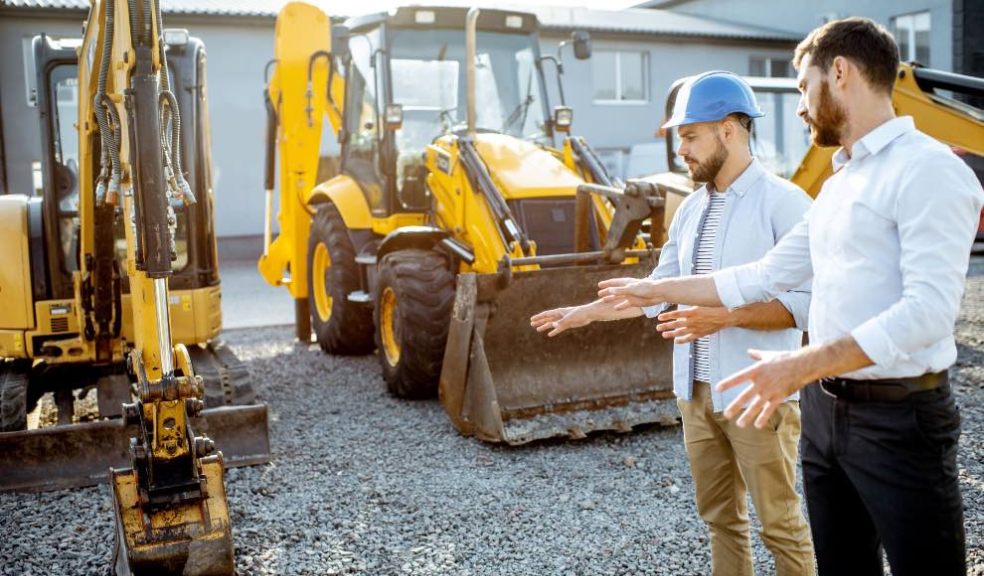
Cost-Effective Construction: Renting Vs. Buying Equipment
When it comes to effective construction project management, every decision you make is crucial, especially when it involves your budget. One of the biggest choices you'll face? Whether to rent or buy your equipment.
The answer isn't just about the immediate costs; it's about long-term financial planning and strategy. If you're a seasoned contractor or a project manager, understanding the nuances of this decision can impact the success and profitability of your building project.
This article dives into the cost-effective approaches to construction project management. It compares the upfront costs of buying equipment versus the flexibility and potential long-term cost savings of renting. Dig in for considerations to choose the option that works best for you!
Initial Cost And Capital Outlay
When it comes to renting or buying equipment, your wallet feels the difference. Renting is easier on your budget at first. You don't have to drop a hefty sum upfront, which is excellent for smaller projects or when you're starting out. This frees up cash for other crucial needs, like advertising or paying your team members.
The best part? There are many equipment hire specialists out there. All you need to do is research to find the best equipment rental in your region. For instance, click here or look for other reputable equipment rental websites if you're looking for a reliable company. Make sure you read reviews and testimonials to find a trusted partner.
Renting keeps your business agile and helps you handle more opportunities. It's an intelligent way for modular construction companies to grow their businesses without breaking the bank.
Buying equipment, on the other hand, is a different story. You'll need a considerable amount at once. Sometimes, this means dipping into your savings or getting a loan. And loans come with interest, which adds to your overall cost. Before deciding, think about your budget. Making the right choice can help you avoid cost overruns.
Maintenance And Repairs
Owning your construction materials means you're in charge of keeping them in top shape. This can hit your bank hard. You'll need to do regular check-ups to keep everything operational and avoid wasting building materials. And when something breaks? That's also on you.
But when you rent your equipment, the rental company handles all that maintenance work. They make sure the equipment works great before you even touch it. If something goes wrong, they'll fix it or swap it out—no extra construction costs for you.
Take a jackhammer, for example. Own it, and you're dealing with oil changes, new bits, and maybe even engine repairs. But rent it, and you pick up a ready-to-go tool. When you complete the job, you hand it back. Such peace of mind can be crucial when juggling multiple construction projects.
Project Duration And Frequency
Think about the duration of your building project and how often you'll need the construction equipment. This will help you decide whether to rent or buy.
Do you have a quick job coming up? Renting might be more cost-effective. You won't be stuck with expensive gear gathering dust in your garage. For example, if you're laying tile for a week-long bathroom remodel, renting a tile cutter makes sense.
But if you're always using certain tools, buying them could lead to long-term cost savings. For instance, if you're a painter, you'll need to use rollers, brushes, and sprayers daily. Buying this equipment will cut costs over time.
So, when making a decision, consider your work pattern. Do you tackle lots of short-term jobs or a few big ones? This affects your choice. Renting gives you flexibility for varied projects while buying suits steady, consistent work.
Flexibility And Availability
Equipment leasing companies stay on top of construction trends. This means you'll always have access to the newest tools and the latest tech. This can boost your work speed and help you meet demanding job standards.
Do you need a high-tech laser level for a precision job? Rent it. Next week, you might need a powerful drill for a different construction project. Renting lets you grab what you need when you need it.
Buying your equipment also has its perks. Your tools are always there, ready to go; no more waiting or scheduling hassles. However, you might end up using older gear if you can't afford to upgrade often.
Resale Value And Depreciation
When you buy equipment, you're not just spending money; you're investing in your business. Down the road, you can sell your tools when you're done with them or ready to upgrade. This can put some cash back in your pocket.
But here's the downside: tools lose value over time. It's like buying a new truck. The moment you drive it off the lot, it's worth decreases. The same goes for your work gear.
For instance, say you splash out about GDP£4,000 on a top-notch cement mixer. After five years of solid use, you might only get around GDP£1,500 for it. Still, that's better than nothing.
The tricky bit is guessing how much your kit will be worth later. The market can shift. Sometimes, tools hold their value well. Other times, they depreciate fast.
So, when you're trying to decide whether to buy, think about the long game. Will you be able to shift it later? How much might you get back? These questions can help you make a savvier choice for your business.
Conclusion
Deciding whether to rent or buy construction equipment is more than cost management. It's a strategic choice that can define the direction of your business. As you weigh the pros and cons, don't just focus on the costs. Instead, consider how each option aligns with the nature of your projects and your business's growth. Making an informed decision will ensure that your equipment strategy supports your overall business objectives, enhancing your ability to complete projects successfully and profitably.

















